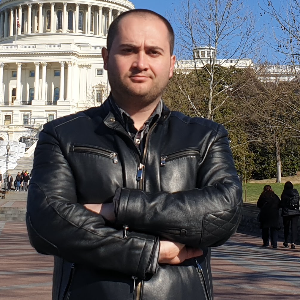Title : Cellular Polyamines Condense Hyperphosphorylated Tau Triggering Alzheimer’s Disease
Abstract:
Many gaps in our understanding of Alzheimer’s disease (AD) remain despite intense research efforts. Perhaps the most prominent gap is the mechanism of tau condensation and fibrillization. One viewpoint is that positively charged tau is condensed by cytosolic polyanions. However, this hypothesis is likely based on an overestimation of the abundance and stability of cytosolic polyanions and an underestimation of crucial intracellular constituents – the cationic polyamines. Here, we propose an alternative mechanism grounded in cellular biology. We describe extensive molecular dynamics simulations and analysis on physiologically relevant model systems, which suggest that it is not positively charged, unmodified tau that is condensed by cytosolic polyanions but negatively charged, hyperphosphorylated tau that is condensed by cytosolic polycations. Our work has broad implications for Alzheimer’s research and drug development and the broader field of tauopathies in general, potentially paving the way to future etiologic therapies.
What will audience learn from your presentation?
- The talk is primarily intended for researchers in the field of neurodegenerative disorders.
- It focuses on aspects of cellular biology which are currently underappreciated and understudied in Alzheimer’s research.
- The presentation lays out a mechanism for tau condensation and fibrillization in AD.
- From the proposed condensation mechanism, the work derives a possible etiologic mechanism and points the research community to molecular targets that warrant investigation.


